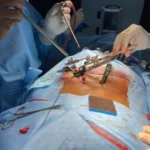Treatment programs for young people offer structured environments where healing and personal growth flourish. These programs combine evidence-based therapies, academic support, and life skills development to address various challenges affecting youth. Professional staff members work closely with each young person to create personalized treatment plans targeting their specific needs.
Foundations of therapeutic support
Mental health professionals use proven therapeutic methods to help young people overcome difficulties. Individual counselling sessions allow youth to process emotions and develop coping strategies. Group therapy creates opportunities for peer support and social skill building. Parent-child relationships are strengthened and communication is improved through family therapy sessions.
Academic growth during treatment
Education remains a priority throughout the treatment process. Certified teachers work alongside therapists to maintain academic progress while addressing emotional and behavioural needs. Small class sizes ensure each student receives individual attention and support. This integrated approach helps young people stay on track with their studies while working through personal challenges.
Creating structure through daily routines
Consistent schedules help young people develop healthy habits and self-discipline. Morning activities often include exercise and mindfulness practices to start the day positively. Afternoon schedules balance academic work with therapeutic sessions. Evening activities focus on building social connections through group projects and supervised recreation.
Life skills development and preparation
Treatment programs emphasize practical skills that support independent living and healthy decision-making. Classroom lessons include nutrition, personal hygiene, time management, and emotional regulation. They practice these skills daily under staff guidance, building confidence and capability. Young people in treatment programs learn to build healthy friendships and support networks. Group activities teach cooperation, communication, and conflict-resolution skills. These social connections often become an important source of encouragement during challenging moments.
Family involvement and support
Parents and family members actively participate in the treatment journey. Regular family therapy sessions address relationship dynamics and communication patterns. Parents learn strategies to support their child’s progress and maintain positive changes after treatment ends. This collaborative approach strengthens family bonds and improves outcomes.
Transitioning back to daily life
As young people progress through treatment, staff members help them prepare for returning to their regular routines. This includes developing aftercare plans, identifying community resources, and practising coping strategies for managing stress.
Many families find that residential treatment centers for youth provide the comprehensive care and structure their children need to make lasting positive changes. These specialized facilities offer around-the-clock support from trained professionals who understand adolescent development and mental health.
Measuring progress and celebrating growth
Treatment programs track progress through regular assessments and goal reviews. Staff members document improvements in behaviour, emotional regulation, and academic performance. By celebrating these achievements, both big and small, young people are motivated to continue growing.
Building lasting resilience
The skills and insights gained during treatment serve as building blocks for long-term wellness. Young people learn to recognize their strengths, manage challenges, and maintain healthy relationships. These foundational tools support continued personal growth long after the program ends.
Successful treatment programs empower young people to envision and work toward positive futures. They develop confidence and abilities through therapy, skill-building, and supportive relationships. This combination of professional care, structured support, and personal growth opportunities helps young people overcome challenges and build bright futures.











